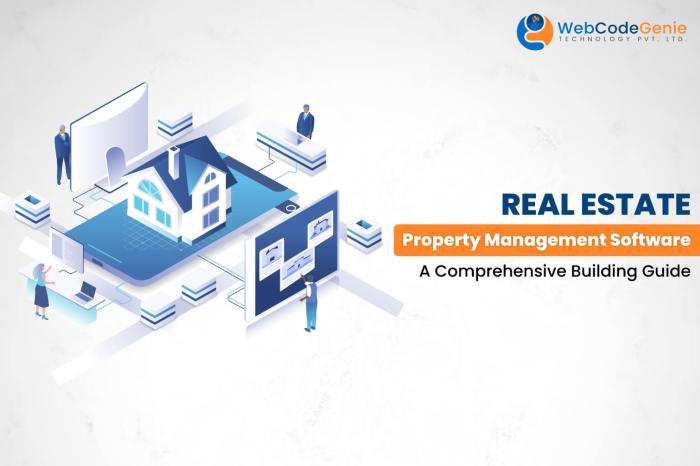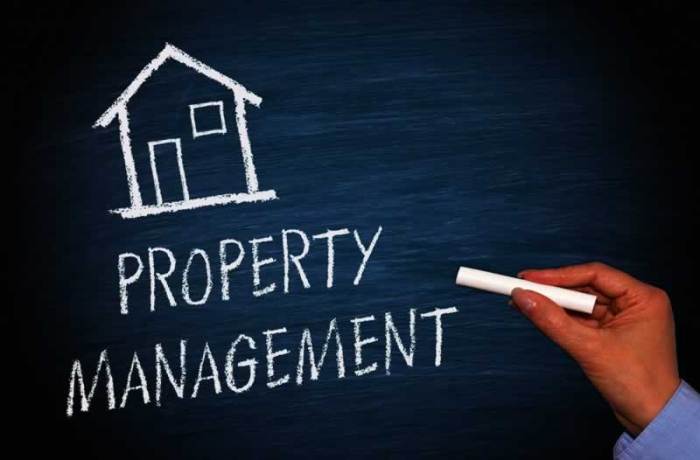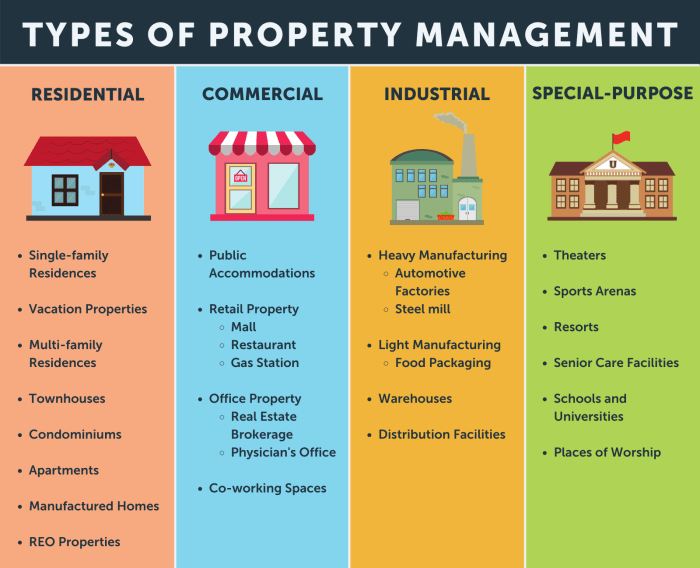Delve into the world of real estate property management where every decision counts, and every detail shapes the landscape of success. From marketing strategies to legal compliance, this topic offers a comprehensive guide to navigating the complexities of property management with finesse and expertise.
Overview of Real Estate Property Management

Real estate property management involves overseeing residential, commercial, or industrial properties on behalf of the owner. Property managers act as intermediaries between landlords and tenants, ensuring that the property is well-maintained and that all legal obligations are met.
Key Responsibilities of a Property Manager
- Setting and collecting rent: Property managers are responsible for determining the appropriate rent level to attract tenants and collecting rent from tenants.
- Maintenance and repairs: It is the property manager's duty to ensure the property is well-maintained and promptly address any maintenance issues that arise.
- Tenant relations: Property managers handle tenant inquiries, complaints, and issues, as well as managing lease agreements and evictions if necessary.
- Marketing and leasing: Property managers market vacant properties to attract tenants, conduct showings, and screen potential tenants through background checks.
- Financial reporting: Property managers keep detailed financial records of income and expenses related to the property, providing regular reports to the property owner.
Importance of Effective Property Management in Real Estate
Effective property management is crucial for maximizing the value of a real estate investment. By ensuring that the property is well-maintained, attracting and retaining quality tenants, and handling all legal and financial aspects of property ownership, property managers help property owners generate income and protect their investment.
Good property management can also enhance the overall reputation of the property and lead to long-term success in the real estate market.
Property Marketing and Tenant Relations
Effective property marketing and maintaining positive tenant relations are crucial aspects of real estate property management. By implementing strategic marketing tactics and fostering good relationships with tenants, property managers can maximize occupancy rates and ensure tenant satisfaction.
Strategies for Marketing Rental Properties
- Utilize online listing platforms such as Zillow, Apartments.com, and Craigslist to reach a wider audience.
- Invest in professional photography and virtual tours to showcase the property's features and attract potential tenants.
- Implement targeted advertising campaigns on social media platforms to reach specific demographics.
- Offer incentives such as move-in specials or referral bonuses to attract prospective tenants.
Attracting and Retaining Tenants
- Ensure the property is well-maintained and address any maintenance issues promptly to create a positive living experience for tenants.
- Provide excellent customer service and establish clear communication channels to address tenant concerns effectively.
- Offer amenities and services that add value to the rental property, such as on-site laundry facilities or pet-friendly policies.
- Implement lease renewal incentives to encourage tenants to stay long-term, such as rent discounts or upgrades.
Importance of Maintaining Positive Tenant Relations
- Positive tenant relations lead to higher tenant satisfaction, lower turnover rates, and increased word-of-mouth referrals.
- Good tenant relations can help prevent conflicts and disputes, leading to smoother operations and reduced legal issues.
- Happy tenants are more likely to take care of the property and follow lease terms, contributing to the overall success of the property management business.
- Building trust and rapport with tenants can result in better communication and collaboration, leading to a more harmonious landlord-tenant relationship.
Maintenance and Repairs
Proper maintenance and timely repairs are crucial aspects of effective property management. Ensuring that the property is well-maintained not only enhances its value but also contributes to tenant satisfaction and retention. In this section, we will discuss best practices for property maintenance, the importance of timely repairs, and tips for budgeting maintenance costs efficiently.
Best Practices for Property Maintenance
- Conduct regular inspections of the property to identify any maintenance issues early on.
- Develop a preventative maintenance schedule for key systems such as HVAC, plumbing, and electrical.
- Keep detailed records of maintenance activities, including dates, costs, and contractors involved.
- Prioritize safety and compliance with building codes and regulations.
Importance of Timely Repairs
- Timely repairs help prevent minor issues from escalating into major problems that could be costly to fix.
- Promptly addressing maintenance requests improves tenant satisfaction and overall property reputation.
- Delaying repairs can lead to unhappy tenants, increased vacancy rates, and potential legal issues.
Tips for Budgeting Maintenance Costs Efficiently
- Set aside a portion of the rental income each month for maintenance expenses to ensure you have funds available when needed.
- Obtain multiple quotes from contractors for maintenance and repair work to compare prices and ensure you are getting the best value.
- Prioritize maintenance tasks based on urgency and importance to allocate your budget effectively.
- Consider investing in long-term solutions that may require a higher upfront cost but result in lower maintenance expenses over time.
Legal Compliance and Risk Management
Ensuring legal compliance and managing risks are crucial aspects of property management to avoid potential issues and protect both landlords and tenants.
Key Legal Requirements for Property Managers
- Understanding local, state, and federal rental laws and regulations
- Complying with fair housing laws to prevent discrimination
- Maintaining accurate and up-to-date lease agreements
- Handling security deposits in accordance with the law
- Ensuring property inspections and maintenance meet legal standards
Ensuring Compliance with Rental Laws and Regulations
- Regularly review and update lease agreements to reflect current laws
- Stay informed about any changes in rental regulations at the local, state, and federal levels
- Train property management staff on legal requirements and best practices
- Maintain detailed records of all transactions and communications with tenants
Strategies for Mitigating Risks Associated with Property Management
- Carry appropriate insurance coverage for property management activities
- Implement thorough tenant screening processes to reduce the risk of problematic tenants
- Promptly address maintenance issues to prevent accidents or property damage
- Develop emergency response plans to handle unexpected situations effectively
- Consult with legal professionals when facing complex legal issues or disputes
Financial Management

In real estate property management, financial management plays a crucial role in ensuring the success and profitability of the properties under management. It involves various aspects such as setting rental rates, budgeting, financial planning, and overall financial decision-making.
Setting Rental Rates
Setting the right rental rates for properties is essential to attract tenants while maximizing profitability. Factors to consider include the property's location, size, amenities, market demand, and comparable rental rates in the area. Conducting a thorough market analysis and staying updated on current market trends can help property managers determine competitive yet profitable rental rates.
Budgeting and Financial Planning
Budgeting and financial planning are vital components of effective property management. Property managers need to create detailed budgets that Artikel income sources, expenses, reserves for maintenance and repairs, and other financial obligations. By forecasting income and expenses, property managers can proactively address financial challenges, allocate resources efficiently, and ensure the financial health of the property.
Importance of Financial Management
Financial management in property management is crucial for maintaining the property's long-term sustainability and profitability. It enables property managers to make informed decisions, track financial performance, optimize cash flow, and ultimately achieve the property owner's financial goals. By implementing sound financial management practices, property managers can enhance the value of the property and attract potential investors or buyers.
Final Wrap-Up

In conclusion, real estate property management is not just about overseeing properties; it's about building lasting relationships, ensuring compliance, and making strategic financial decisions. By mastering the art of property management, one can unlock a world of opportunities and pave the way for long-term success in the real estate industry.
FAQ Summary
What are the key responsibilities of a property manager?
Property managers are responsible for overseeing the day-to-day operations of rental properties, which includes tasks such as tenant communication, property maintenance, rent collection, and lease enforcement.
How can property managers ensure legal compliance?
Property managers can ensure legal compliance by staying updated on rental laws and regulations, conducting regular property inspections, and maintaining thorough documentation of all transactions and interactions with tenants.
What are the best practices for property maintenance?
Best practices for property maintenance include conducting regular inspections, addressing maintenance issues promptly, keeping detailed maintenance records, and proactively addressing potential problems before they escalate.
How can property managers effectively attract and retain tenants?
Property managers can attract and retain tenants by implementing strategic marketing tactics, providing excellent customer service, maintaining a well-maintained property, and fostering positive tenant relationships.
What financial aspects are involved in property management?
The financial aspects of property management include setting rental rates, budgeting for maintenance costs, tracking income and expenses, preparing financial reports, and ensuring financial stability for the property.







